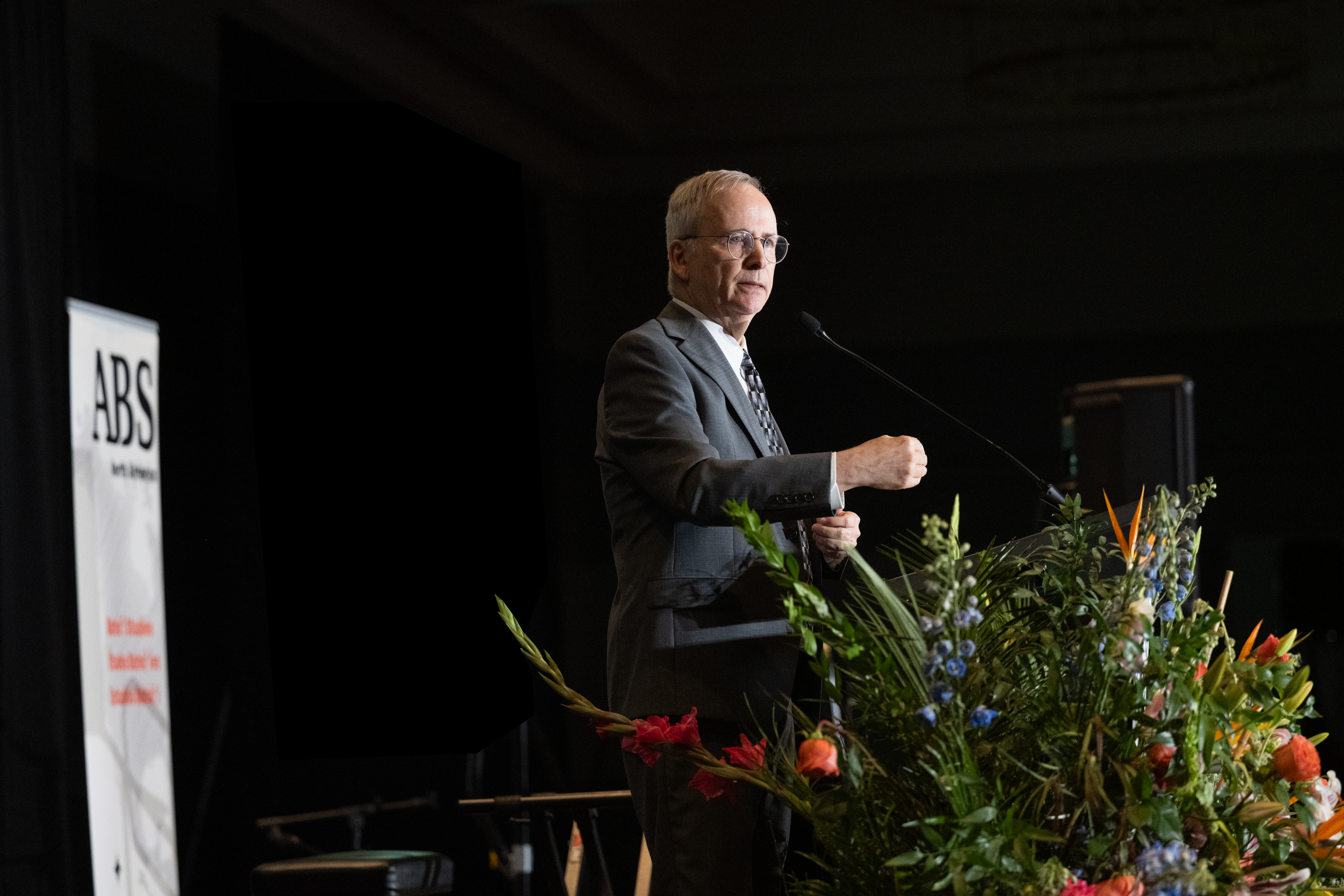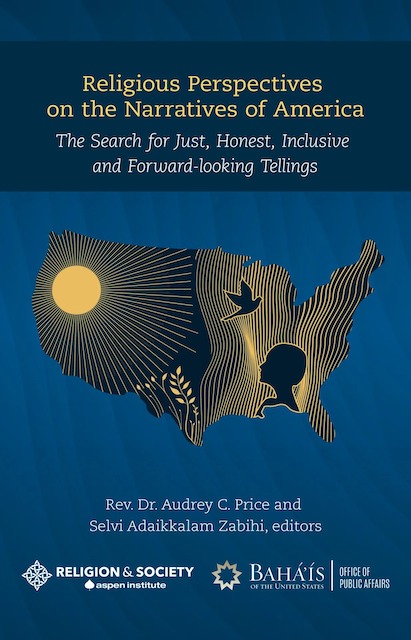
Musical production provides racial healing venue for cast and audiences
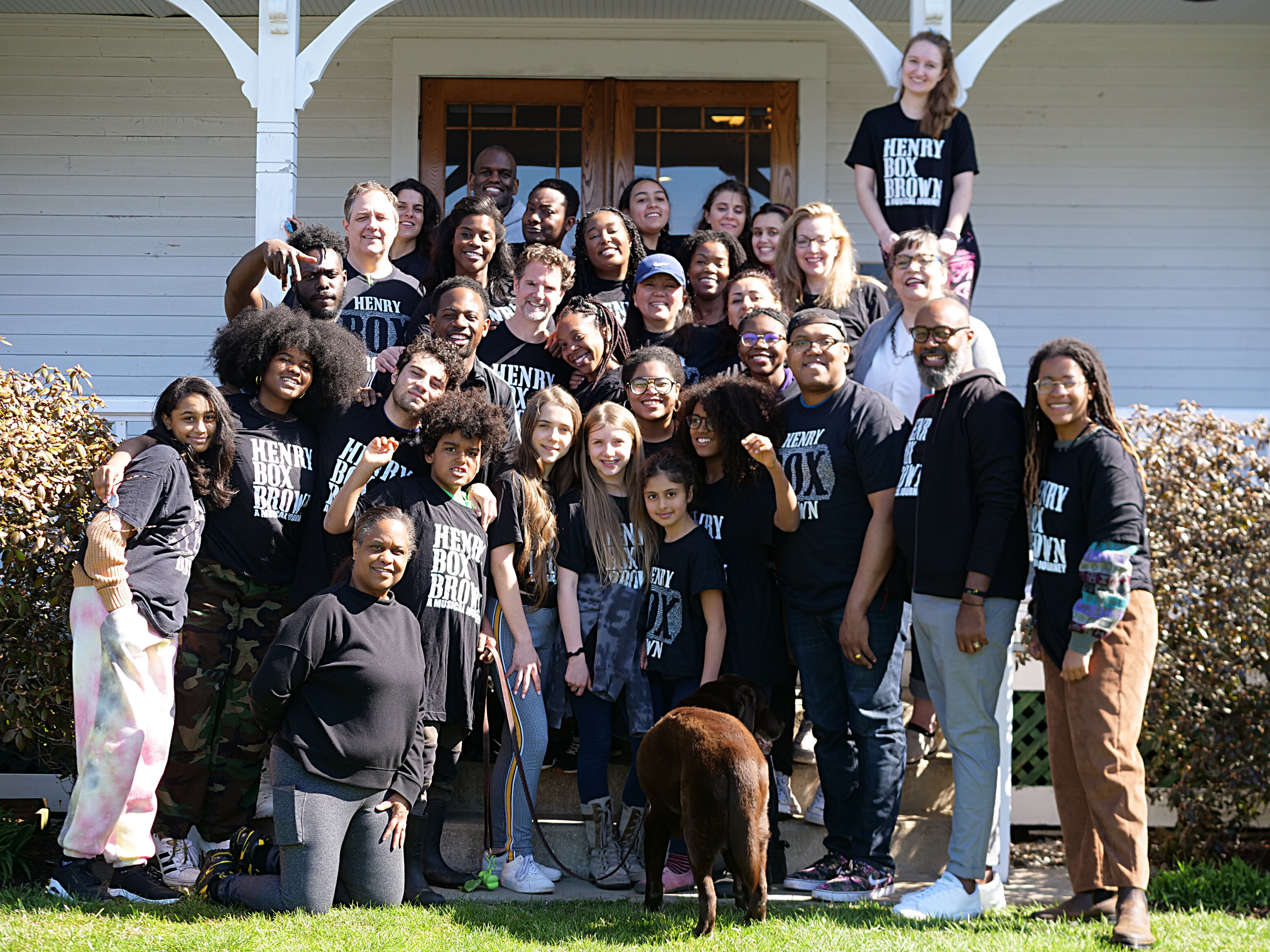
Following a year marked by racial turmoil more pronounced than any since the Civil Rights Movements of the 1960s, the cast and crew of the musical Henry Box Brown gathered on the campus of Green Acre Baha’i School in Eliot, Maine, to seek healing from racism and to define themselves as protagonists in the struggle for racial justice.
Observing strict COVID-19 protocols, they formed a bubble of around 40 people and spent three weeks in March and April rehearsing new music for the show. They also cultivated an atmosphere of devotional mindfulness that would allow them to not only rehearse but also to process the daily trauma of reliving a story set in the time of slavery.
Parts of the play are traumatic for the performers, says Eric Dozier, a composer and musical artist who collaborated on the show. “You’re reliving the abduction, you’re reliving the motherless child, you’re reliving all those spirituals every time you sing them.”
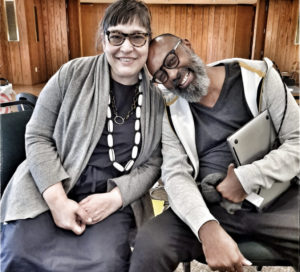
Written and directed by Mehr Mansuri, founder of the Baha’i-inspired Children’s Theater Company of New York, the musical re-enacts the story of Henry Brown, an enslaved man in the United States who shipped himself to freedom in the North. Before doing so, Brown saw his wife and children sold to another slaveholder in betrayal of an agreement Brown had made to keep his family together.
Dozier conducted daily workshops with the actors in which they not only sought healing but also explored the ways Brown was empowered. They noted his resilience, his hopefulness in the face of extreme duress, and his entrepreneurship. Brown not only wrote of his experiences after he attained freedom but also leveraged them into a career as an advocate for racial justice.
“I wanted the artists to know that we [Black Americans] have evolved methods and tools to not only take care of our spirits in these situations, but also we developed these tools to undermine a system of white supremacy and chattel slavery,” Dozier says. “We used music, we used art, we used dance to do it. We used our minds, we used our bodies, we used every resource that was available to us to undermine and fight our way out of the system. We were active agents in our own liberation.”
Mansuri observes that the cast and crew, most of whom are people of color and are not members of the Baha’i Faith, are exercising the agency Dozier refers to and are extending it beyond the performance of the show to engage audiences in the work of advancing racial justice and unity.
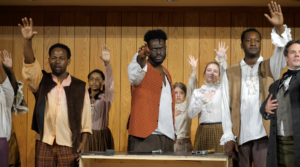
“Anyone who comes to see the show will know immediately that it’s not going to end with the show,” she says. “The day after the show is the real work. And the goal is to walk with those in the community on the path of service and listen to their aspirations and align our visions.”
To that end, Mansuri and the staff at Green Acre are moving forward with plans to bring Henry Box Brown to Dover, New Hampshire, this fall. Dover is less than 10 miles from the Green Acre campus, and Green Acre staff identified the community as having the resources in place to use the show as a starting point for discourse and action surrounding race. Dover will be the second stop on a Henry Box Brown tour this year, the first being in Jackson, Tennessee, from August 24-29. After Dover, the tour will visit Chicago and then two other cities.
The Children’s Theater Company with the support of the Louhelen Baha’i School, opened a local chapter in Flint, Michigan, where starting in 2019 performances of Henry Box Brown have stimulated conversations at a school and in the community at large.
This work provides a blueprint for plans to engage audiences in Dover, with some differences. Flint is a majority Black community, and Dover is 90 percent white. Frank Robinson, operations manager at Green Acre, says that while the audience makeup could affect how the program eventually contributes to the communities, the contribution will be no less valuable.
“To start to have children know the things they are not necessarily going to be taught, to start developing empathy bereft of having Black people around, I think is enormous because Shoghi Effendi [head of the Baha’i Faith, 1921-1957] outlined that both races have tasks to do to resolve the issue of racial prejudice,” Robinson says.
He says the show and the engagement with audiences afterward perfectly complement the school’s ongoing work with local police and prosecutors around the topic of race.
“It mirrors what we’re doing here,” Robinson says. “I feel that it’s so timely that the Children’s Theater Company could come in and help amplify the conversation to the community.”


